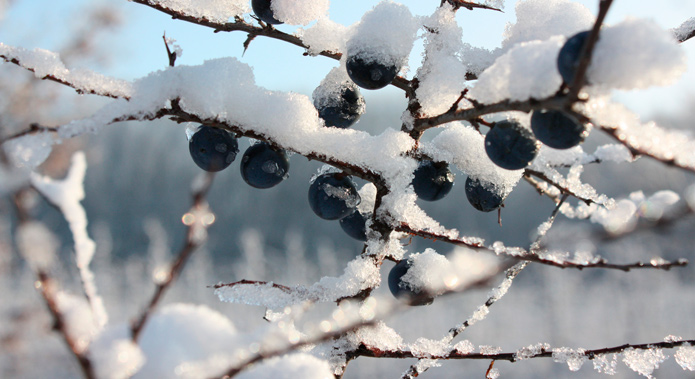Blueberries under the Snow
Life, ethics and spirituality in the aphorisms of Madame Swetchine

Sofia Petrovna Soymonova (1782-1857, known as Madame Swetchine) was a Russian writer, who settled in Paris, where she arrived around 1826, after her conversion to Catholicism. She was a polyglot, with a fine intellectual and spiritual sensitivity. In her Parisian house, she organized a literary salon where the cream of the French intellectually linked to Catholic liberalism met. As a hostess of high courtesy, she knew how to “nourish the conversation without ever taking it over, guarding that kind of sacred fire, proper to social gatherings, so that all the participants could approach it” (cfr. XXXVI, p. 17). I have read her book of aphorisms, Blueberries under the Snow (Cypress Culture, 2024). A calm, thoughtful, and dialogue reading of each of the aphorisms – to which I have returned more than once – stopping to savor the wisdom they contain. It is one of those books that cannot be “told”, it must be read: each aphorism exudes wit, and simplicity, and illuminates one’s journey.
The first aphorism reads as follows: “May our life be pure as a snowfield where our steps are imprinted without leaving a stain” (p. 13). A great desire. At first glance, it seems more like a wish within the reach of angels than of mere mortals; however, it is still good advice, even for those of us who have been on the road for decades and are not up to par. We look back, we find a long way to go with its achievements, successes, stumbles, and stains. Discouragement? No, because in life’s vicissitudes, we can raise our hearts to the Almighty and say: thank you, forgive me, help me more. The same author affirms: “In the autumn of the heart, there is no movement that does not bring happiness or hope.” A hopeful life does not lack the illusion of continually straightening its course.
Madame Swetchine says: “All the joys of the earth would not yet satisfy our thirst for happiness, and a single pain is enough to envelop life in a veil of shadow, to strike it at all its points” (XLII, p. 18). We go back in time, and we meet Saint Augustine, who reminds us that “our heart is restless until it rests in the Lord.” A heart that knows of loves, joys, pains, worries, our own sorrows and those of our loved ones, precisely because we love. Joys and pains are lodged in the heart, in that mysterious coexistence beautifully pointed out by Antonio Machado: “I had the thorn of a passion in my heart; I managed to pull it out one day: I no longer feel my heart.” And just as it is true that a single pain is enough to darken our day and fill us with anxiety, it is also true that a single smile, a small drop of joy is enough to make our day. A grateful soul knows how to celebrate with the little dew that refreshes it.
On the other hand, for these times of hyperinformation, Soymonova reminds us that wisdom does not follow from the mere accumulation of data. She says: “knowledge that does nothing more than furnish our mind, that remains imported into it without taking root, without adding its strength and extension, is our property, but it is not ours, and it leaves us at the same level of moral value as when we took it” (LXVI, p. 21). In the field of ethics, this aphorism is especially lucid. We can be very clear about ethical principles (doing good, avoiding evil; the end does not justify the means), we can know the importance of virtues for a good life in society (telling the truth, respecting the physical and moral integrity of others, being honest and rejecting bribes). Knowledge of undoubted importance, but its possession does not make us good people and upright citizens. So often it is just furniture that decorates postures lacking ethical consistency. The good life requires that ethical principles bite into the flesh until they are translated into observable morally correct behaviors.
Great actions to become a good person? Maybe, sometimes. What is at our fingertips is more prosaic and small, but that does not mean it does not have a vocation for eternity, given that God is mixed in the small things of this world, our author points out. Small things, of today and now, earthly and divine at the same time, since “the master of Eternity is also the master of now” (XXVI, p. 36).
Madame Swetchine, profound and charming, with a fine knowledge of the human condition, without angelism or rugged fatalism. Her aphorisms are a good example of intelligent thought and fineness of spirit. Thoughts ripened under the snow, like the blueberries of her native Russia, where they have acquired color and sweetness.
 (EN)
(EN)
 (ES)
(ES)
 (IT)
(IT)





